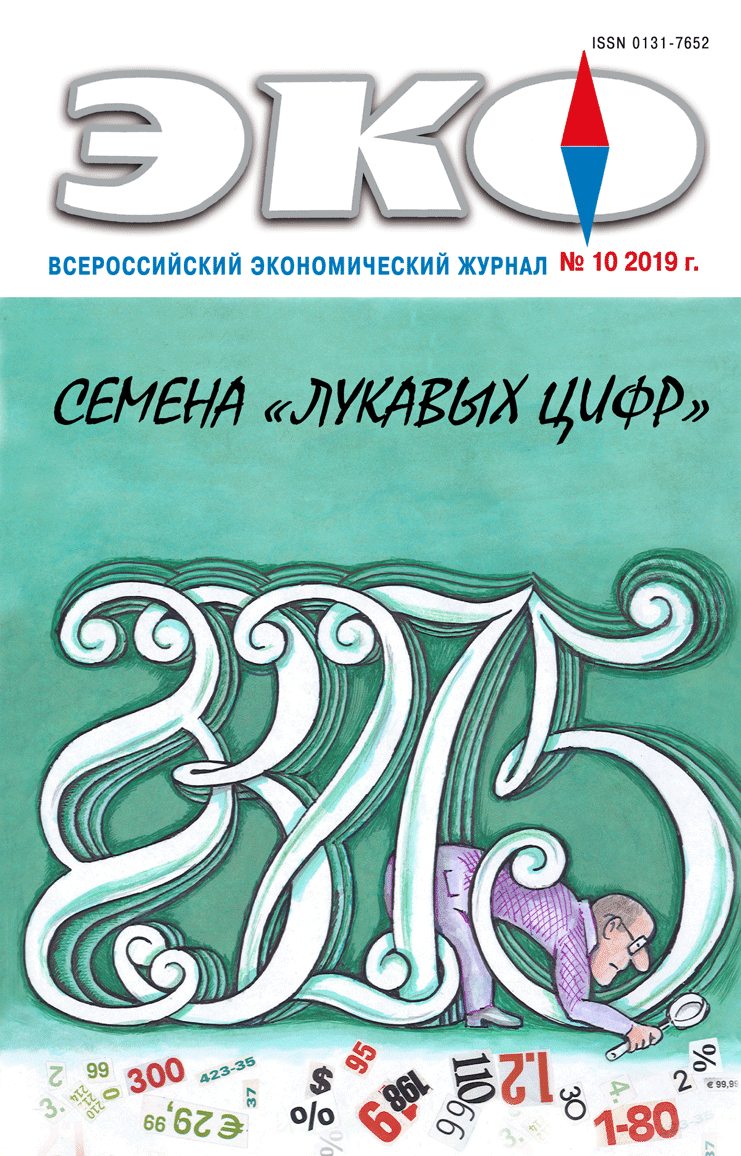Тема номера: Семена лукавых цифр
Connection between Ecological Law Violations and Possible Distortion of Financial Reports
Published 2019-10-03
Keywords
- ecological law violation,
- distortion of accounting,
- state optics,
- probit regression,
- opportunistic behavior
- unobservable economy ...More
How to Cite
1.
Alekseev М, Glinskiy В, Serga Л. Connection between Ecological Law Violations and Possible Distortion of Financial Reports. ECO [Internet]. 2019 Oct. 3 [cited 2026 Mar. 5];49(10):78-93. Available from: https://ecotrends.ru/index.php/eco/article/view/3896
Abstract
This paper sets out to test statistically a hypothesis that the ecological laws violations are connected with distortions of financial reports of economic agents. The sample includes companies that operate in Russia and violate ecologic laws. We have analyzed financial reports of selected companies using the authors’ methodology which includes typologization of companies and construction of a probit regression. The obtained results make it possible to confirm the hypotheses and estimate the quality of accounting (financial) reports of companies under consideration.References
- Алексеев М. А. Информационное пространство финансового рынка. Новосибирск: Изд-во НГУЭУ. 2017. 247 с.
- Глинский В. В. Мифическая статистика малого бизнеса. Проблемы статистического изучения турбулентных совокупностей // ЭКО. 2008. № 9. С. 51–62.
- Комаров А. В., Скрипникова М. В. Сопоставление объемов легальной и теневой экономики в России и ведущих странах мира за 2005–2015 гг. // Экономика. Бизнес. Банки. 2017. № 2. С. 9–19.
- Уильямсон О. И. Экономические институты капитализма: Фирмы, рынки, «отношенческая» контрактация. СПб.: Лениздат; CEV Press, 1996. 702 с.
- Ширяева Я. Д. Ненаблюдаемая экономика и ее оценка // Terra Economicus. 2009. Т. 7. № 2. С. 82–96.
- Feige E. Defining and estimating underground and informal economies: The new institutional economics approach // World Development. 1990. Vol. 18. No. 7. P. 989–1002.
- Glinskiy V., Serga L., Khvan M., Zaykov K. A Spatio-dynamic modelling of environmental safety of the Russian Federation regions // Procedia Manufacturing. 2017. Vol. 8. P. 315–322.
- Medina L., Schneider F. Shadow economies around the world: What did we learn over the last 20 years? IMF Working Paper WP/18/17, 2018.
- Savas E. S. Privatization and Public-Private Partnerships. New York, Chatham House Publishers, Seven Bridges Press, 2000.

